How Apprentices Learn the Periodic Table Without Memorizing It
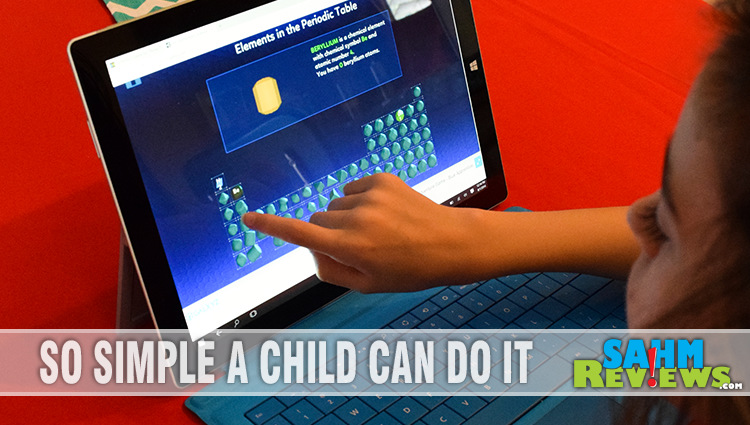
It’s time to come clean about something. History was my least favorite class in school because, well, yawn. It didn’t keep my attention and my teachers didn’t have fun ways to for us to learn. As odd as it sounds, despite my knack for math, I didn’t have an affinity for science. I enjoyed math because it was a giant puzzle waiting to be solved, but I never really saw science that way. It was intimidating and detailed and screamed “You don’t really want Honor Roll, do you?”
In hindsight, I probably would have enjoyed it had I given it a chance. But it seemed like a lot of memorization and there’s nothing more frustrating that relying on your memory to pass a class. There weren’t fun applications and methods for remembering back then, either. I’m embarrassed to say that I remember the periodic table element, AU, because it was featured in an episode of The Facts of Life. Other than that, there wasn’t anything to drive the theories and principles home enough to stick.
We weren’t fortunate enough to have robotics programs or science games that make learning fun. It wasn’t until recently that we discovered games like The Manhattan Project, Peptide and Linkage, which help explain very difficult situations and principles in an entertaining yet educational way. We didn’t have programs focused on engineering, STEM / STEAM initiatives or anything like that and we definitely didn’t have science textbooks targeted at toddlers. When asked why he was inspired to create games and toddler science textbooks, John Coveyou from Genius Games said, “Kids are both curious and highly impressionable – always wondering why things happen the way they do and, sometimes, recalling the answers we give them for years to come. But when these kids get older, the most common hurdle hindering their learning is the perception that science is intimidating! So I thought, why not create products that make learning science fun and easy and remove the intimidation before it ever gains a foothold.” John’s statement hit home because it summed up exactly how I’ve felt about science since I was young. It’s intimidating.
So when I heard about an app that was designed to inspire learning in a way that was fun and made sense, I wanted to know more. It’s awesome knowing that my kids and the generations to follow (and even adults) can play a game on their electronic device and not only learn the periodic table elements but also develop scientific reasoning skills and elementary concepts at the same time. Galxyz’s Blue Apprentice creates a digital ecosystem where decisions impact the story line including environmentally. Sure you can kill off all the creepy, crawly bugs but what impact will it have in the future?
In an interview with Osman Rashid, Founder and CEO of Galyxz, I asked what inspired him to create such a diverse and intricate app. His answer hit very close to home. His daughters, now 14 and 10, are very close in age to Madison and Kennedy. When his youngest was 7 and a half, she asked where gold came from. Excited to share this scientific detail with her, like most parents do, he searched online for visual graphics to help with the conversation. Unfortunately, he couldn’t find anything.
That was the catalyst for Galxyz’s Blue Apprentice. He not only wanted a game that is educational but one that uses concepts of sciences and not memorization. As an example, it takes a piece of snow and shows the particles that make it up then breaking out elements into the periodic table. The game progresses forward as players learn and is based on levels and not grades in school.
The game utilizes interactive learning through the adventures as an apprentice. Learn about atoms, the periodic table of elements, where things come from and how science concepts interact. Osman explained that there is one part where you follow teeth marks left on trees to learn more about the animals and whether they are herbivores, carnivores or omnivores. The player has the opportunity to make decisions about what to do with these creatures which ultimately can impact the environment. As an example, if you kill off a particular plant then the animals that feed on it will lose their food source. What happens then? On the flip side, if you eliminate an upchain predator, then there will be an overabundance of prey eating more than normal. Then what?
When Kennedy sat down to play, she was learning about compounds and elements within 5 minutes! She was asking me questions and her curiosity (and interest) was evident. I don’t remember ever being excited about a periodic table!
As exciting as the game itself is, the more monumental part of this is who has taken notice. Popular Science reached out to Galxyz after learning about their mission through NY Academy of Sciences. This new partnership involves Popular Science taking their standard magazine articles and rewriting in a way that young readers (ages 6-12) can understand. The new science microsite will feature exclusive videos starring the characters from the Blue Apprentice universe. The end goal is for kids and parents to be able to read the “same” article then engage in conversations regarding it.
While I feel that our kids have more options in school than we did, I think the introduction of educational games and apps such as Galxyz make learning more fun. Partnerships between these types of companies and Popular Science magazine make it even better for the next generation!
Visit the website to learn more about the game, watch the game’s trailer, download the app on iTunes, visit them on Twitter and Facebook and read more about the partnership with Popular Science. Introducing kids to science in fun ways when they are young will make it less intimidating when they get older.
Did you enjoy science as a kid?
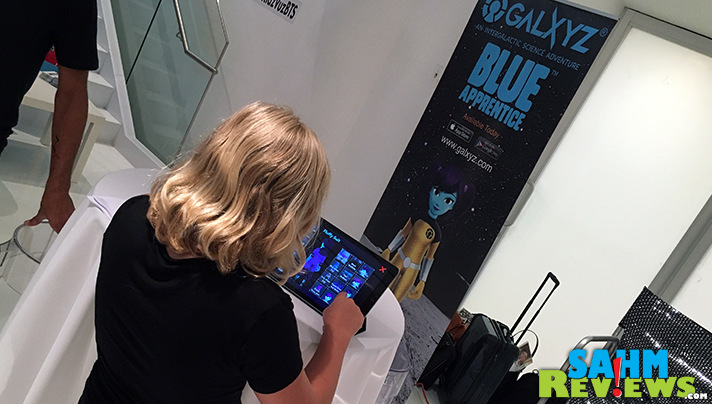
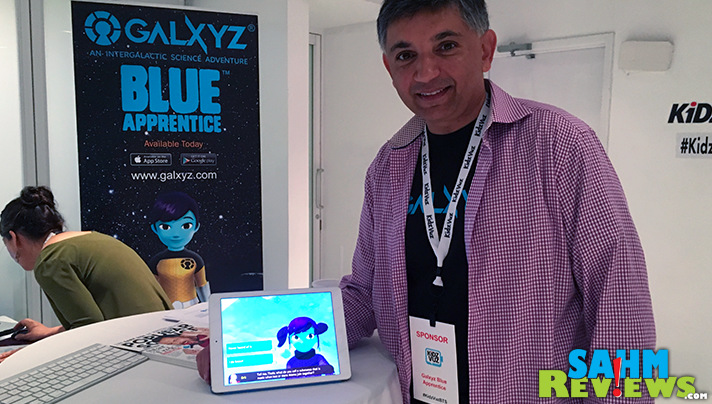
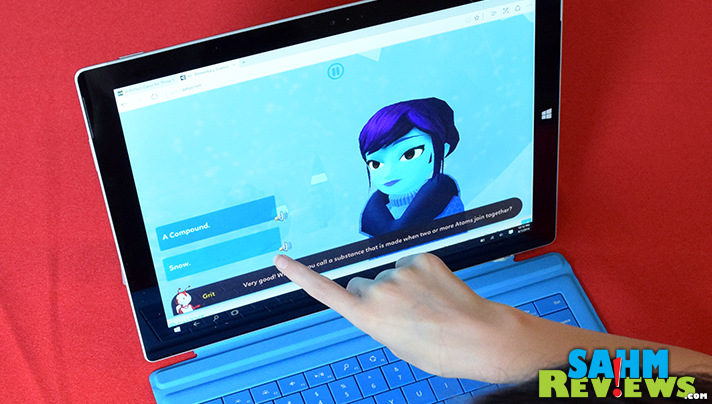
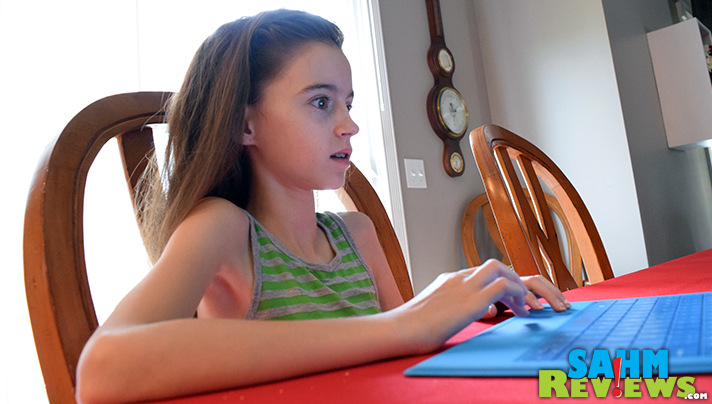
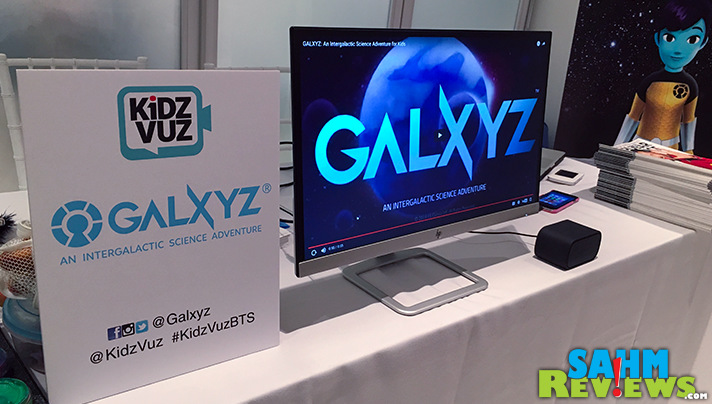

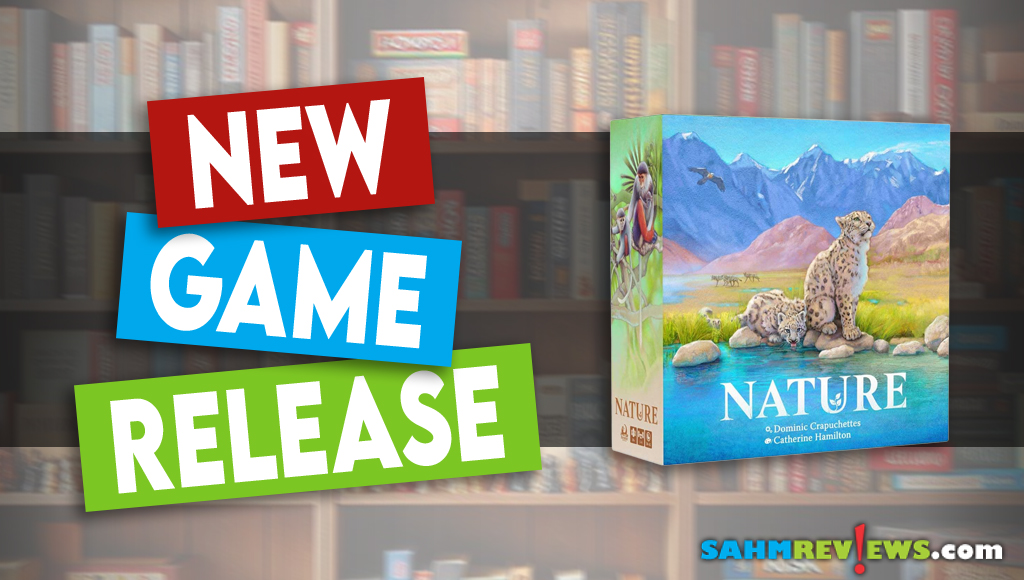
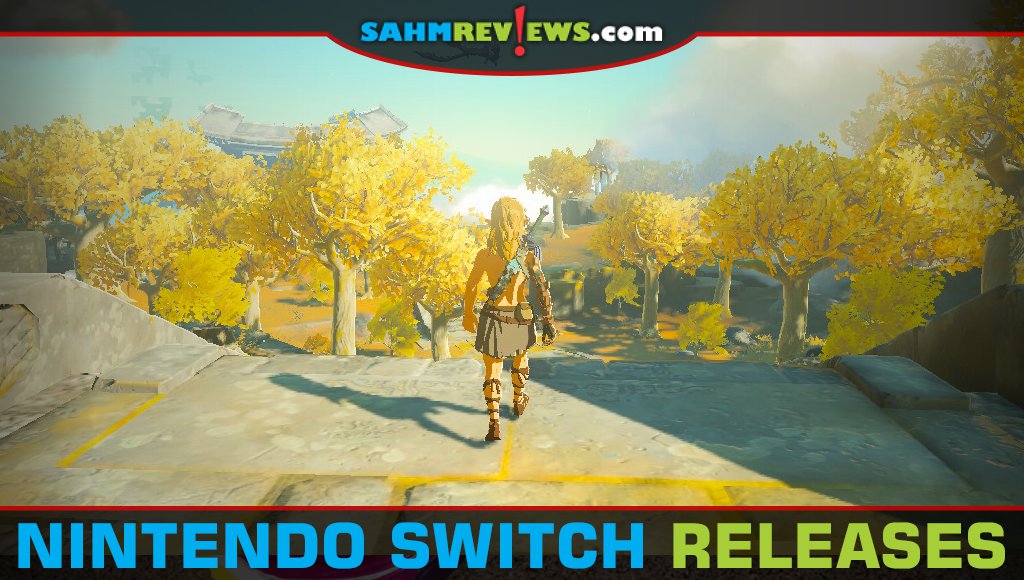
Well isn’t this the coolest thing. Thanks for sharing it!!!
I loved science as a kid, but I always had an issue memorizing the periodic table for school. This app looks pretty awesome. My nephew is in love with science, and I think he would definitely enjoy this app.
I didn’t have a love for math or science, but being in advanced courses had to take them. I learned by memorization, this sounds like it would have been more fun.
This sounds like a great learning game, putting the kids right into the project rather than just tossing facts their way! Excellent!
Now that is awesome! My kids do so well with science principles when they are turned into a game! This would be perfect for them!
I remember trying to memorize the periodic table when I took college chem. I was awful at it! This would have come in handy. Yes, I know it’s for kids, but that means it’s easy for adults too, right? My son is starting middle school this year, so I bet this will be great for him!
It’s strange but I loved science and math eluded me totally!! Other then basic math it still does actually. I am so glad to hear that at least one company is making science fun to learn these days.
I am so happy to leran about this! Wish it would have been around during my daughter’s middle and elementary school days.
Really cool! I love this and can’t wait to share it with my boys. I know they’ll love it!
I’ll definitely keep this in mind for when my kids get a bit older, thanks.